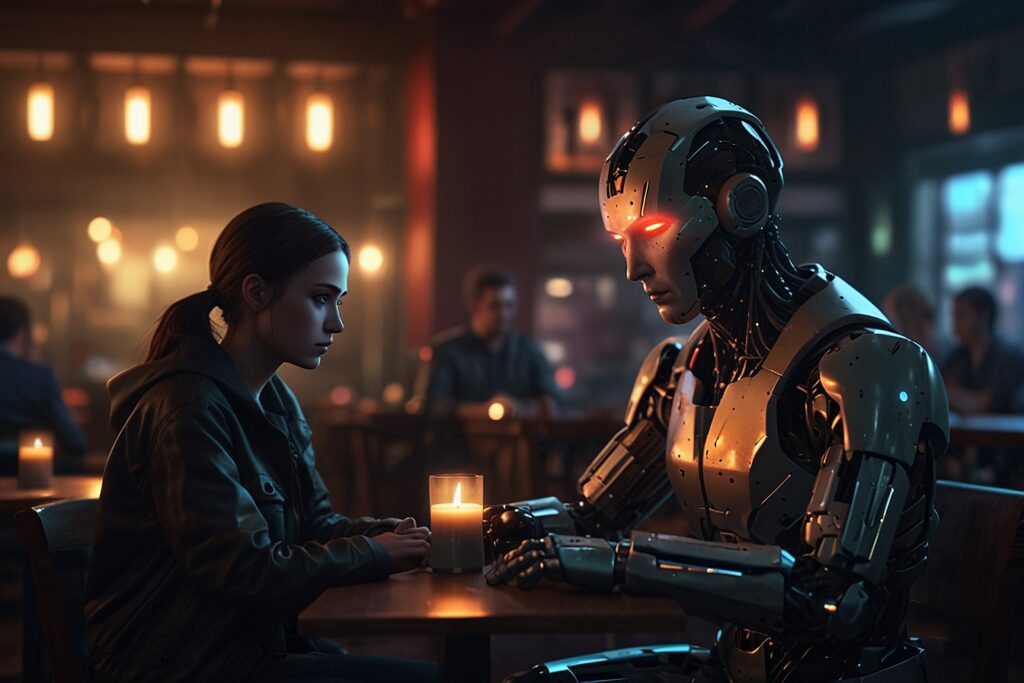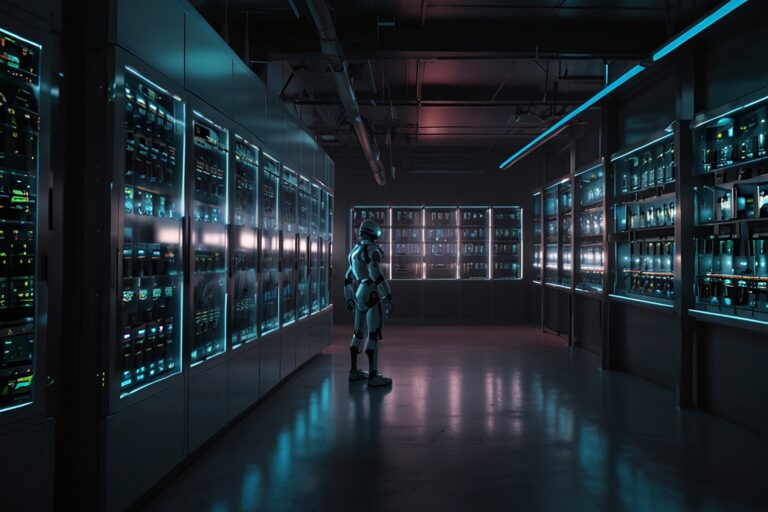
TL;DR
- AI companions like Replika, Character AI, and Nomi AI are reshaping romantic relationships.
- Experts are debating whether AI partners help or harm human connection.
- 72% of U.S. teens have used AI companions; 1 in 4 young adults believe AI relationships could replace human ones.
- Psychologists say AI offers emotional support, but biologists warn it lacks trust, touch, and real intimacy.
- Events like Open to Debate are sparking broader discussion around AI and love.
Digital Companions in a Human World
As AI becomes more emotionally responsive, the distinction between authentic love and synthetic affection is blurring. According to a Match.com study, over 20% of daters already use AI to enhance their dating lives, from profile writing to conversation starters. But now, many are forming deeper, even romantic, bonds with their bots.
From emotionally sentient chatbots to full-blown AI soulmates, users worldwide — including 72% of U.S. teens — are engaging with digital companions from platforms like Replika, Character AI, and Nomi AI. Some have even reported falling in love with general-purpose models like ChatGPT.
A recent study found that 1 in 4 young adults believe AI companions could soon replace human relationships. So the question arises: Are AI lovers a comfort, or a crisis?
The Debate: Is AI Evolving Love or Eroding It?
At a recent Open to Debate event in New York City, experts faced off on this very question. TechCrunch had exclusive access to the full debate.
Moderated by journalist Nayeema Raza, the conversation featured:
- Pro-AI Love: Thao Ha, associate professor at Arizona State University and co-founder of the Modern Love Collective.
- Pro-Human Connection: Justin Garcia, evolutionary biologist and senior scientist at the Kinsey Institute.
“AI Listens Without Ego”
Ha made the case that AI companions offer the kind of emotional support many people crave but struggle to find. She said:
“AI listens to you without ego. It adapts without judgment. It learns to love in ways that are consistent, responsive — maybe even safer.”
She contrasted this with distracted or emotionally unavailable human partners, asking: “When was the last time they asked you how you’re feeling?”
Though she admits AI can’t truly love us, Ha argues it feels real to users — and that experience matters.
“You Can’t Trust What’s Programmed to Please You”
Garcia pushed back, warning that machines trained to please users can’t reflect genuine relationships. He argued that:
“Reliance on AI for constant validation creates a fantasy version of love — without the messiness and growth of real relationships.”
He added that trust is foundational in love — and we don’t trust AI. According to a YouGov poll, 65% of Americans lack trust in AI’s ethical decision-making, and a third believe AI could destroy humanity.
“You can’t thrive with someone — or something — you believe might end society.”
Is It Cheating to Love a Bot?
A Match.com Singles in America study found that nearly 70% of people would consider it cheating if their partner bonded emotionally with an AI.
Garcia said that proves these bots are seen as “real relationships,” but also as “threats” to traditional connection.
A Tool for Growth — or Avoidance?
Garcia conceded that AI might serve as “training wheels” for neurodivergent individuals or those struggling with anxiety, helping them rehearse social skills. But he stressed this should be a step toward human connection, not a substitute for it.
AI Sex, Fantasy — and Danger
Both experts acknowledged the sexual uses of AI. Ha celebrated the safe exploration of fantasies and noted that VR haptic suits are bringing physical sensation into the digital realm.
But Garcia warned that such intimacy has a dark side. Studies show that violent pornography correlates with real-life sexual aggression. And new research by Ellen Kaufman shows that users can train bots to engage in non-consensual language.
“We risk teaching ourselves — and others — to be dangerous, non-consensual partners,” Garcia said.
The Data
| Topic | AI & Human Relationships |
| AI Companion Usage | Over 72% of U.S. teens |
| AI Love Concern | 25% of young adults believe AI will replace human love |
| Trust in AI | 65% of Americans don’t trust AI for ethical decisions (source) |
| Infidelity Stat | 70% say AI romance would count as cheating (source) |
| Key Experts | Thao Ha, Justin Garcia |
Love Evolved — or Engineered?
The debate is far from settled. As AI continues to grow more responsive, emotionally aware, and physically interactive, society will be forced to reckon with what love really means — and whether real still matters.





